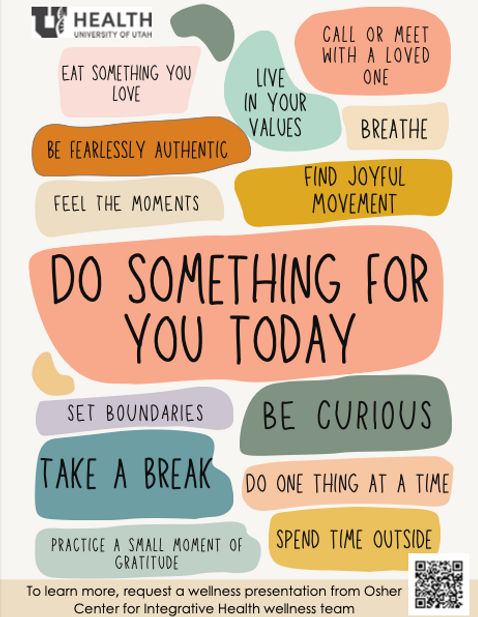hese trying times seem a bit like the marvelous tales of mythology. The world as we know it is plagued by an unseen foe in the midst of a grand struggle. It feels like a modern Pandora’s box has opened, and we, the humble humans, are striving to keep our lives and livelihoods as uninterrupted as possible.
The Myth: “I can do it all.”
Like Hercules and his 12 labors, we face new and unknown struggles at work and at home. Many of us tackled one of those beasts—taking on our kid’s education while adapting to remote work. It’s anyone’s guess what Herculean labor is next.
Yet many of us are more comfortable doubling down at work rather than taking a breather. We are betting on ourselves that, with perseverance and dedication, we will prevail! However, if you’ll forgive the extended metaphor, this may be the Sisyphean effort that does more harm than good.
Even before the pandemic set in, our work ethic revolved around the construct that constant work and productivity—both in and outside of work—resulted in a more defined sense of purpose and meaningful life. We made productivity a religion and used social media to amplify our busy-ness.
While many seem to thrive on this adrenaline rush, research shows this obsession with productivity can be a contributor to burnout and disappointment. (Read more about this “addiction” here.)
Couple the science of burnout with the disruption of a pandemic, and your world has become even more unsteady. There is no time like the present to think about work and productivity differently. It’s time to give ourselves—and our staff—permission to disconnect. To gain perspective.
The Science: “No you can’t.”
Not sure what burnout or hyper-productivity looks like? Productivity experts tell us some signs of pushing ourselves too hard include not regularly taking time off work, staying connected at work rather than tuning into home life, and “seeing your value as a person completely defined by work.”
If these sound like you on a regular day, then the challenges of a pandemic may amplify them. It’s up to you to take the Minotaur by the horns and make a plan to avoid pushing yourself too far.
Long-term success is achieved by taking care of ourselves in the short-term. Three words (or letters): Paid time off (PTO). A 2017 survey revealed only 23% of Americans use all their employer-paid time off.
There are plenty of myths that might keep us from taking time off: saving for an unforeseen need, guilt for taking time off while your staff works, or disappointment for not taking a “real” vacation. Research shows you are less productive when you push yourself too hard. Consider the alternatives:
-
Think about a modest break of two days off work rather than a long departure.
-
Set the example for your staff to take time, too. Feel confident while you’re away by learning to build bench strength through delegation.
-
Dispel disappointment and embrace a staycation—but keep making plans for your dream vacay. You’re actually benefitting from planning the trip!
Positive experiences aren’t the same when you’re burned-out. Duke University’s resident burnout expert, Bryan Sexton, says that work fatigue reduces your ability to feel positive emotions, like happiness. To take it to the next level, this means all the hustle and bustle you think brings fulfillment could actually result in going “happiness blind.” Yikes!
And we’re not alone. Our staff could take cues from our persistence when a break would benefit them the most. Learn more about Dr. Sexton’s burnout research through his webinar series on Pulse. He provides the science behind breaking the myth of pushing yourself too far. It will be worth your time.
The Reality: “I’m not sure how to do this!”
If taking a few days off of work still feels like a Herculean effort, try applying a few leadership principles from Jess Rivera and plan to pause.
Leaders take care of their people. Take time to let your staff (and your boss) know what questions or requests they can expect while you’re out. We try to tie up the loose ends, but work continues while you’re out—so set you and your team up for success.
-
Set clear roles and responsibilities for who should manage certain tasks or questions.
-
Turn on your "out of office" message in Outlook and on your phone and provide the information for your back-up contact.
Demonstrate the standards you expect. Our staff take their cues from us. If you choose to check in everyday while “on PTO,” staff may not feel they can actually disconnect when it’s their turn to take time off. Set the example.
Tap into your inner Greek hero and accept your fate—plan to take a break!
Originally published July 2020
Christian Sherwood
What can happen when a pandemic meets medicine’s existing culture of overwork? Burnout. Pediatrician Diane Liu, radiologist Yoshimi Anzai, and family medicine physician Amy Locke provide three ways to re-engineer the workday to address clinician well-being during COVID-19 and beyond.
Being new is hard. Often for new faculty, it means adjusting to a new state, new team, new patients, and a new organizational culture. We asked hospitalists Ryan Murphy and Valerie Vaughn and surgeon Ellen Morrow for tips that only come from a little time under the belt.
We’re all managing unprecedented stress and fear. What is “normal” right now? How do I cope? Social worker Jean Whitlock describes how our body protects us and offers some strategies to help.

